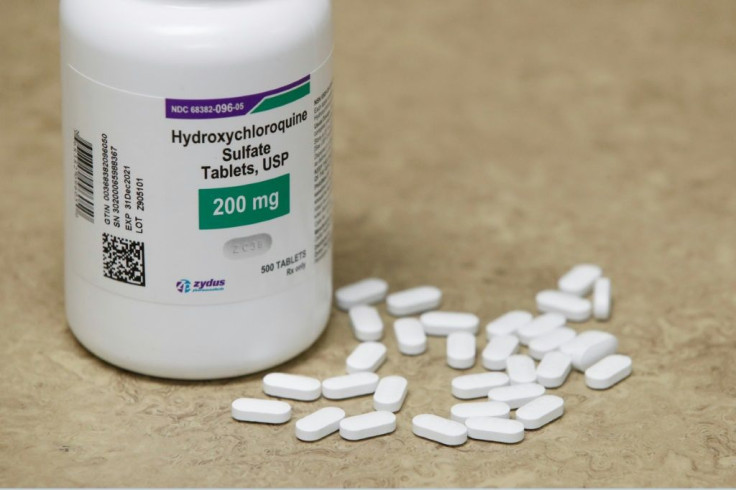Study That Found Hydroxychloroquine Dangerous To Coronavirus Patients Withdrawn, Underlying Data Questioned

KEY POINTS
- The company that provided the underlying data refused to provide detailed data as part of a review
- The Lancet said it takes issues of scientific integrity "extremely seriously"
- Surgisphere claims it has data from 100 million patients treated at 1,200 hospitals and institutions worldwide
The authors of a study that found the anti-malarial drugs hydroxychloroquine and chloroquine produced dangerous heart complications in COVID-19 patients have withdrawn the study amid questions about the underlying data used to arrive at its conclusions.
The study was published May 22 in the medical journal the Lancet. It was based on data provided by Surgisphere Corp., which refused to provide detailed data as part of a review, alarming outside researchers. Surgisphere describes itself as a healthcare analytics firm that claims it has medical records for 100 million patients from 1,200 hospitals and institutions worldwide.
“We can never forget the responsibility we have as researchers to scrupulously ensure that we rely on data sources that adhere to our high standards. Based on this development, we can no longer vouch for the veracity of the primary data sources,” three of the study’s authors -- Mandeep Mehra, Frank Ruschitzka and Amit Patel -- said in withdrawing the research.
In a statement, the Lancet said it takes seriously issues of scientific integrity.
“[T]here are many outstanding questions about Surgisphere and the data that were allegedly included in this study,” the Lancet said.
The retracted study looked at the medical records of 96,000 COVID-19 patients, 15,000 of whom were given the two drugs, which have been touted by President Trump as a preventative and cure for coronavirus. The study concluded the drug alone or given in tandem with an antibiotic raised the risk of death in patients and did nothing to alleviate symptoms.
Scores of researchers have raised questions about the underlying data. The founder of Surgisphere, Dr. Sapan Desai, was the fourth author on the paper.
Trump revealed last month he was on a two-week regimen of hydroxychloroquine despite Food and Drug Administration warnings against taking it outside a clinical setting. He also sent 2 million doses to Brazil, which has become an epicenter for the pandemic that has taken more than 388,100 lives worldwide and is growing at 100,000 cases per day.
A study by the University of Minnesota Medical School published Wednesday indicated hydroxychloroquine had no more impact than a placebo when taken by healthy individuals who had been exposed to the virus.
© Copyright IBTimes 2025. All rights reserved.






















